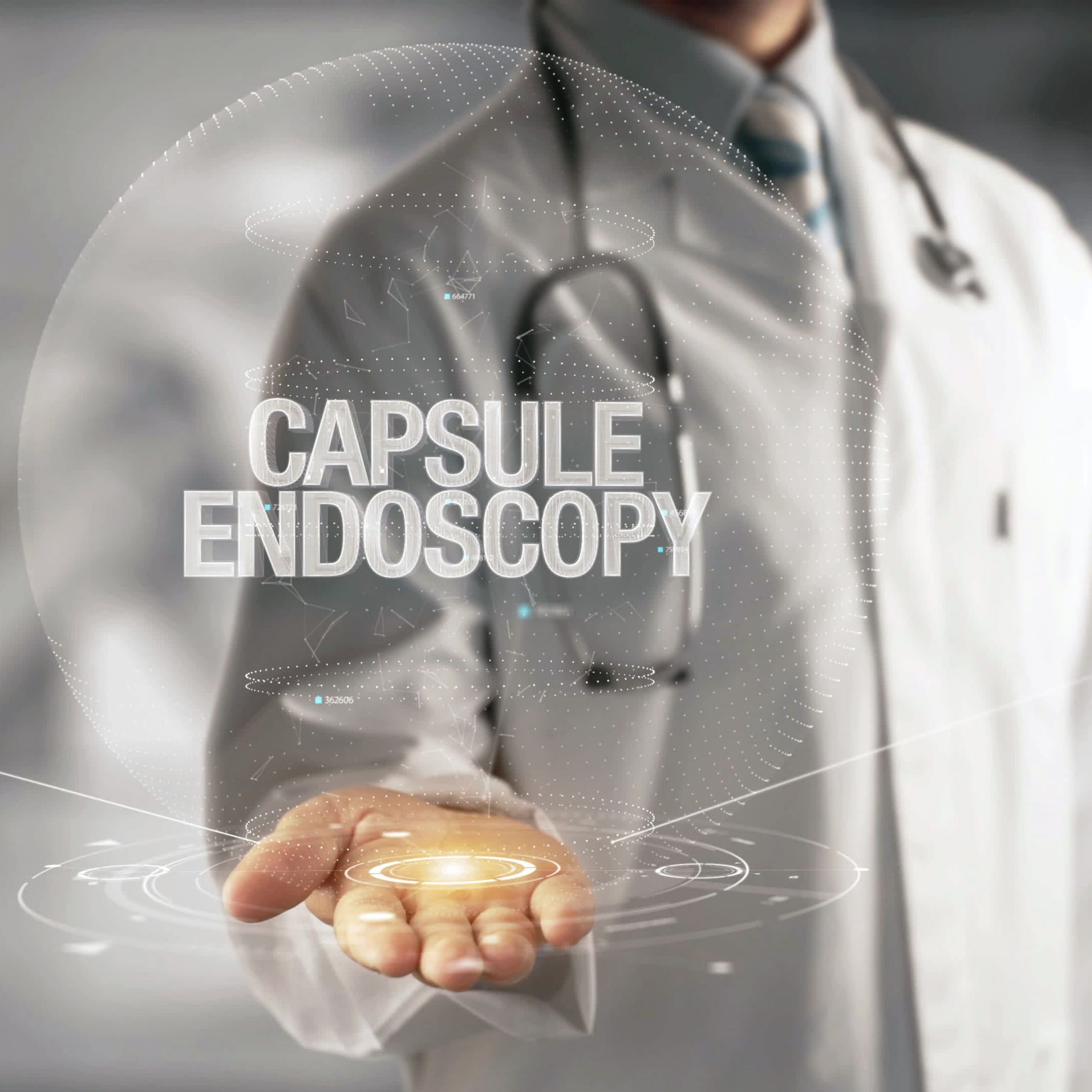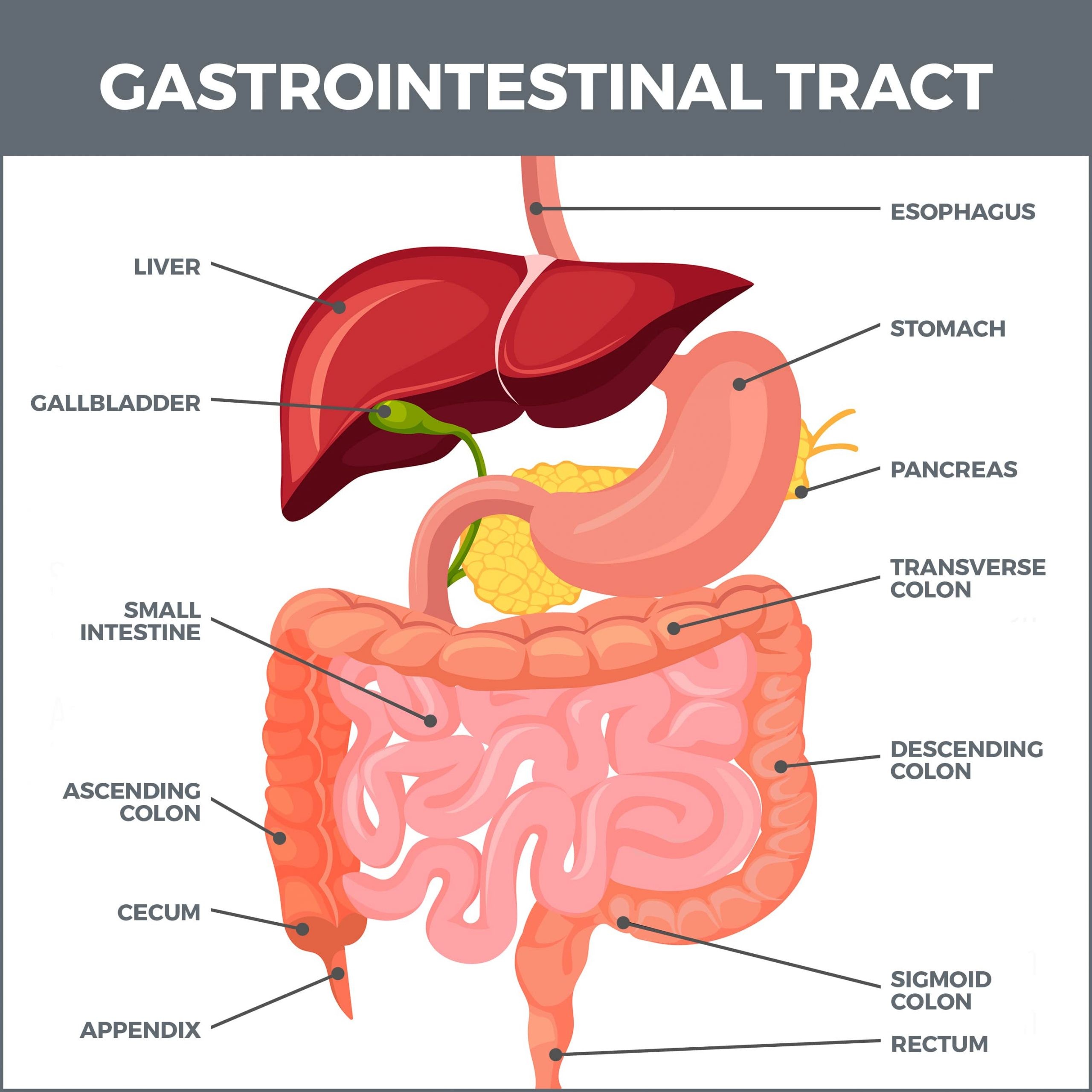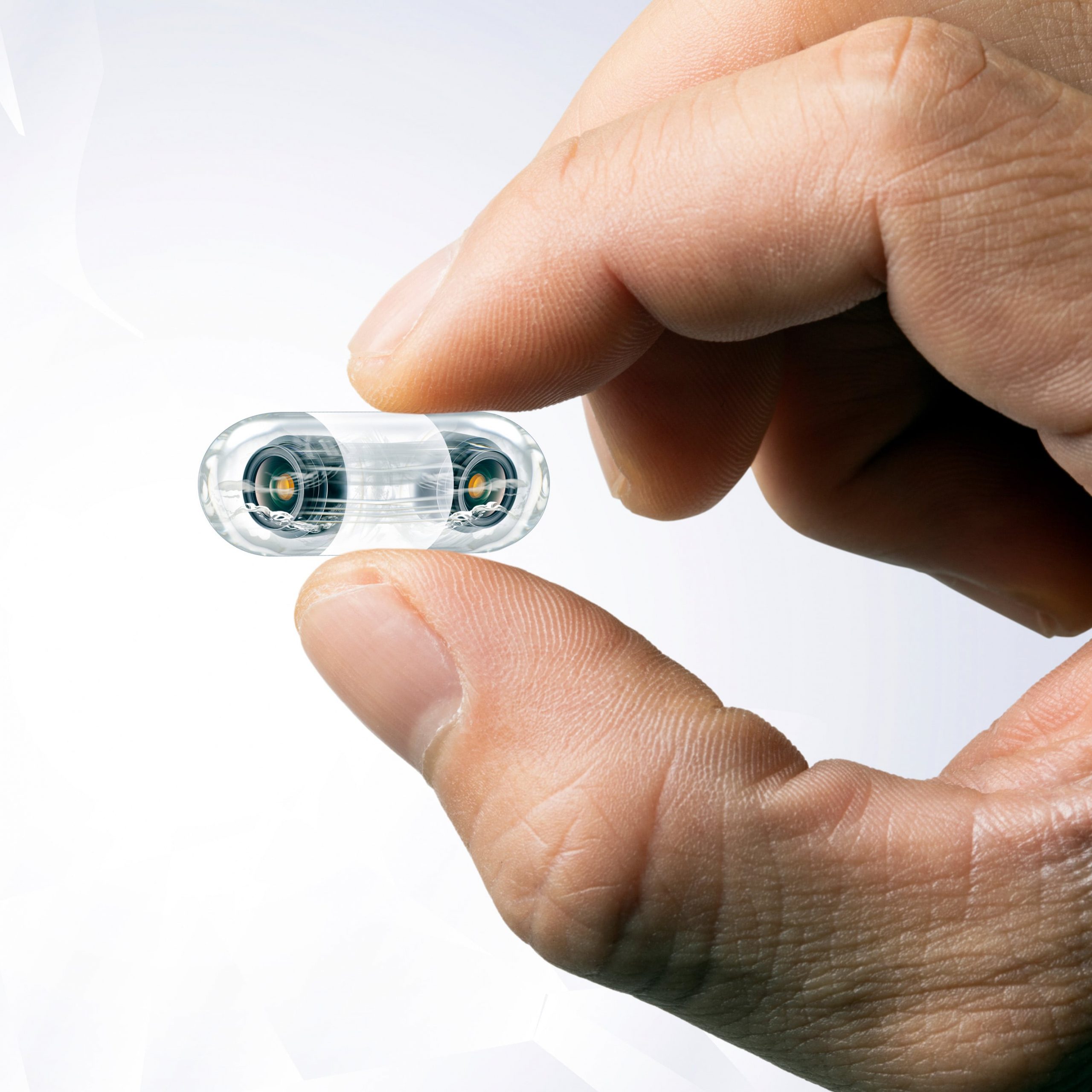
Capsule Endoscopy
What is a Capsule Endoscopy?
You have approximately nine to sixteen feet of small intestine (small bowel) which includes the three portions of the small intestine (duodenum, jejunum and ileum). Until recently, this area has been challenging to explore because it’s situated in the depths of your digestive system.
With a novel approach for viewing this part of the body, capsule endoscopies have resolved this problem. A capsule endoscopy is a diagnostic procedure that provides detailed imaging of the small intestine. It’s an outpatient test that doesn’t require sedation. Capsule endoscopy is also called capsule enteroscopy and wireless capsule endoscopy.
In a capsule endoscopy, you swallow a vitamin-size, plastic capsule equipped with a tiny, wireless camera (also called a PillCam) and an LED light. The capsule is designed with a smooth surface, so it’s easier to swallow. There are no special liquids needed – just a glass of water.
As the PillCam travels through your gastrointestinal system, it rapidly takes thousands of photos and relays them to a tiny receiver attached to a belt on your waist. You won’t feel the capsule as it moves through your body.
Later, the pill passes when you empty your bowels and can be flushed down the toilet. 3-D color images collected by the receiver are downloaded to a computer. A special program links the images together to create a video that a specialist analyzes.
How Long Will It Take the Capsule to Pass Through My Body?
The capsule takes approximately eight hours to travel through your body. But it may only take several hours, or it may take a few days. Each person’s digestive system works differently, so variances are not unusual.
If the capsule doesn’t pass within two weeks, consult your physician.

How Does a Capsule Endoscopy Compare to Other Endoscopic Procedures?
A capsule endoscopy helps physicians view the inside of your small intestine. This is an area that’s difficult to reach by other endoscopic procedures. These include colonoscopies, during which a camera attached to a long, flexible tube is inserted in your rectum, and endoscopies, during which a similar device is passed down your throat.
When is a Capsule Endoscopy Done?
Current capsule endoscopy technology is used to diagnose rather than to treat or take tissue samples. It detects illnesses or abnormalities such as:
- Unexplained gastrointestinal bleeding.
- Iron deficiency.
- Tumors or polyps.
- Celiac disease.
- Crohn’s disease.
- Irritable bowel disease (IBD).
- Peptic ulcers.
How Do I Prepare for a Capsule Endoscopy?
Your doctor will give you specific instructions about how to prepare for this procedure. Generally, you will need to:
- Abstain from food and water 12 hours before the procedure. This ensures your bowels are free of waste.
- Take a laxative. This provides your physician with a clear view of your small intestine.
- Temporarily stop taking non-steroidal anti-inflammatory medications like Advil and Motrin (ibuprofen), aspirin, Pepto-Bismol (bismuth subsalicylate antacids), and iron supplements. Iron can stain the intestinal walls. It can also prevent the capsule from easily passing.
- Tell your doctor if you have certain medical conditions, such as swallowing disorders and heart or lung disease.
- Inform your doctor of the presence of a pacemaker or defibrillator, previous abdominal surgery, or previous history of bowel obstructions in the bowel, inflammatory bowel disease, or adhesions.
What Happens During the Test?
Wear a loose-fitting, natural-fiber t-shirt to your appointment. Make sure it’s at least long enough to reach your hips, so it protectively covers the PillCam belt. Also, make sure it’s clothing you want to wear the rest of the day, so you don’t jostle the equipment by changing outfits.

Sticky electrode patches (sensory arrays) are attached to your abdomen. These are like the ones used during an EKG. Each sensor contains a wire antenna that connects to a recorder on the belt. You’ll wear this belt the entire day. The recorder has a light that will flash to let you know it’s working. If it stops blinking, call your physician.
Don’t apply any lotions, creams, or powders, as this will interfere with the patches’ ability to adhere and properly send information. Don’t wear lipstick, as it could smear the camera’s lens. To keep the equipment dry, don’t shower, bathe, or engage in vigorous activities.
What Happens After I Leave the Doctor’s Office?
The procedure only takes about an hour, and after you’ve swallowed the pill and the belt is connected, you can leave for eight hours. You’re permitted to go about your everyday activities, such as driving, grocery shopping, and working (if it’s not too strenuous). Avoid direct sunlight.
While the pill is traveling, your doctor may instruct you to:
- Drink clear liquids after two hours (water, broth, clear fruit juices). Don’t eat or drink anything orange, red, or purple. This may stain the intestine’s walls. Also, avoid anything containing pulp.
- Eat a light snack, such as soup, toast, or rice, after four hours.
- After this, don’t eat or drink until the test is completed.
If the PillCam hasn’t been excreted after eight hours, you’ll need to continue wearing the equipment until the battery runs out. This is usually 12 to 14 hours after ingestion.
What Happens After a Capsule Endoscopy?
When you return to the office, the belt pack and sensors are removed. You can return to your usual activities and diet. Don’t have an MRI for 30 days after the capsule endoscopy.
Who Shouldn’t Have a Capsule Endoscopy?
A capsule endoscopy should be avoided if:
- You’re pregnant. There have been no clinical trials about the safety of a capsule endoscopy during pregnancy. Theoretically, the capsule could have difficulty moving or get stuck from the pressure of the enlarged uterus.
- Anyone with a swallowing disorder. This could cause you to choke on the PillCam or inhale it.
Contact Us
A capsule endoscopy is a breakthrough technology that permits previously inaccessible areas of the small intestine to be reached and analyzed.
Call us today! The team of professionals at GastroMD looks forward to working with you. We are one of the leading gastroenterology practices in the Tampa Bay area. We perform a host of diagnostic procedures using state-of-the-art equipment in a friendly, comfortable, and inviting atmosphere where patient care is always a top priority!



